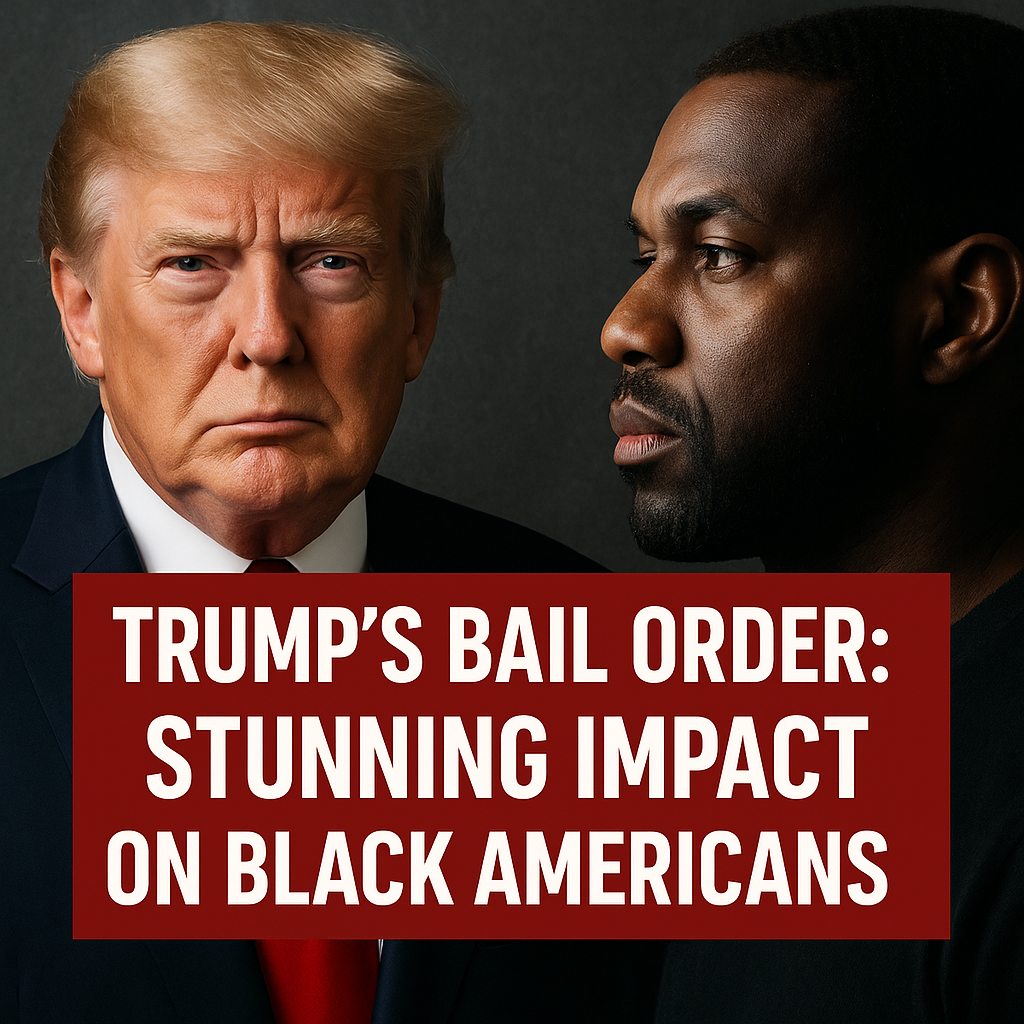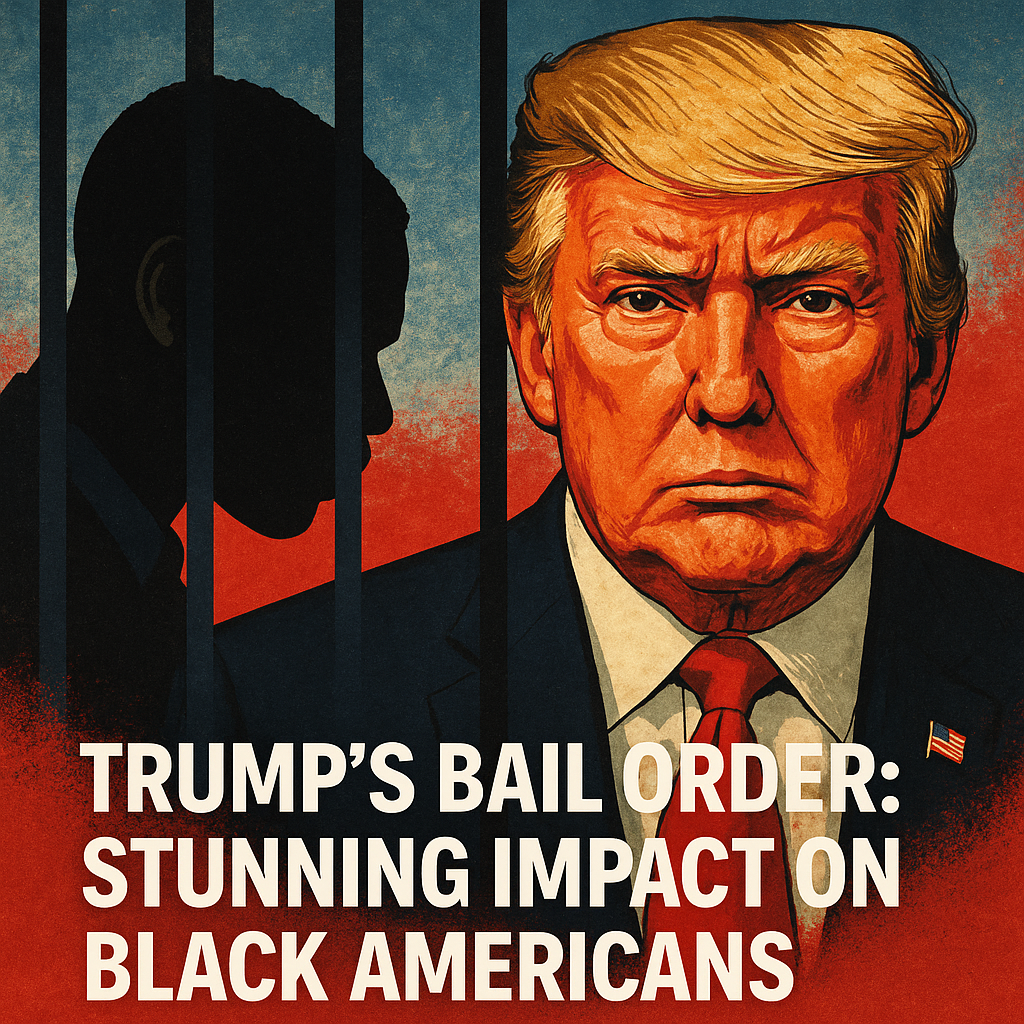Trump’s Bail Order: Stunning Impact on Black Americans
Trump’s Bail Order: Stunning Impact on Black Americans
Trump’s bail order has generated significant debate, particularly regarding its potential implications for Black Americans. This directive, which seeks to reform bail practices, is steeped in controversy and charged sentiments that reflect broader societal issues of justice and equity.
The Nuances of Trump’s Bail Order

Trump’s recent announcement regarding bail practices marks a fundamental shift in how pre-trial detentions could be approached. Specifically, the order aims to address the long-standing issue of bail disparities that minority communities, particularly Black Americans, have faced in the justice system. Advocates suggest that this reform could alleviate some of the financial burdens on those unable to post bail, thus reducing incarceration rates for low-level offenses.
However, critics argue that the order could undermine the nuances of criminal justice reform. Some believe it may inadvertently lead to tougher sentencing and less consideration for pre-trial freedoms. According to a report from Atlanta Daily World, “while reforming bail is essential, it is equally crucial to ensure that such measures do not compromise the safety of communities,” highlighting a significant concern about balancing individual rights with societal protection.
Disparities in Bail Practices
The debate surrounding Trump’s bail order brings to light historical disparities in the bail system that disproportionately affect Black Americans. Numerous studies have shown that Black individuals are more likely to be detained pre-trial than their white counterparts, often due to the inability to afford bail.
This aligns with findings discussed in articles from the Atlanta Voice, which emphasizes how systemic inequalities within the justice system continue to burden marginalized communities. Critics like activist groups assert that reform efforts must address these disparities more thoughtfully, rather than merely adjusting bail amounts.
Mixed Reactions from Community Leaders
Community leaders have shared a spectrum of views on Trump’s bail order. Some see it as a crucial step toward fairness, while others fear it might perpetuate existing power dynamics in the judicial system. “While a unified movement against unfair bail practices is necessary, we still need to be cautious about potential pitfalls,” explained a community advocate interviewed by Atlanta Daily World. Their concern underscores that any reform devoid of input from impacted communities might miss the mark.
Additionally, there are worries that the focus on bail reform could distract from more profound systemic issues like racial profiling, policing tactics, and sentencing disparities. Trump’s order could thus be perceived as a simplistic solution to a complex problem, failing to address the root causes of injustice faced by Black Americans.
The Need for Comprehensive Reforms
One core takeaway from the discourse on Trump’s bail order is the pressing need for comprehensive reform that encompasses multiple facets of the justice system. Experts argue that changes to bail practices should coincide with broader initiatives aimed at examining and addressing systemic racism embedded in law enforcement and judicial processes.
To truly effect change, stakeholders advocate for:
– Increased Accountability: Implementing measures that hold law enforcement accountable for disparities in arrest and incarceration rates.
– Community Engagement: Ensuring that the voices of those most affected are included in the reform dialogue to tailor efforts that meet community needs.
– Education and Resources: Providing communities with the knowledge and resources required to navigate the bail and legal systems effectively.
Conclusion: A Call for Balanced Approaches
While Trump’s bail order presents an opportunity to address some discriminatory practices in the justice system, its potential consequences on Black Americans cannot be understated. As the discourse continues, it becomes increasingly clear that meaningful change necessitates a commitment to understand the complexity of these issues deeply.
In weighing these perspectives, it’s crucial to maintain an open dialogue that not only reflects the urgency of reform but also considers the myriad ways such reforms can impact various populations. Only through a balanced, collaborative approach can we hope to create a more equitable judicial system for all.















